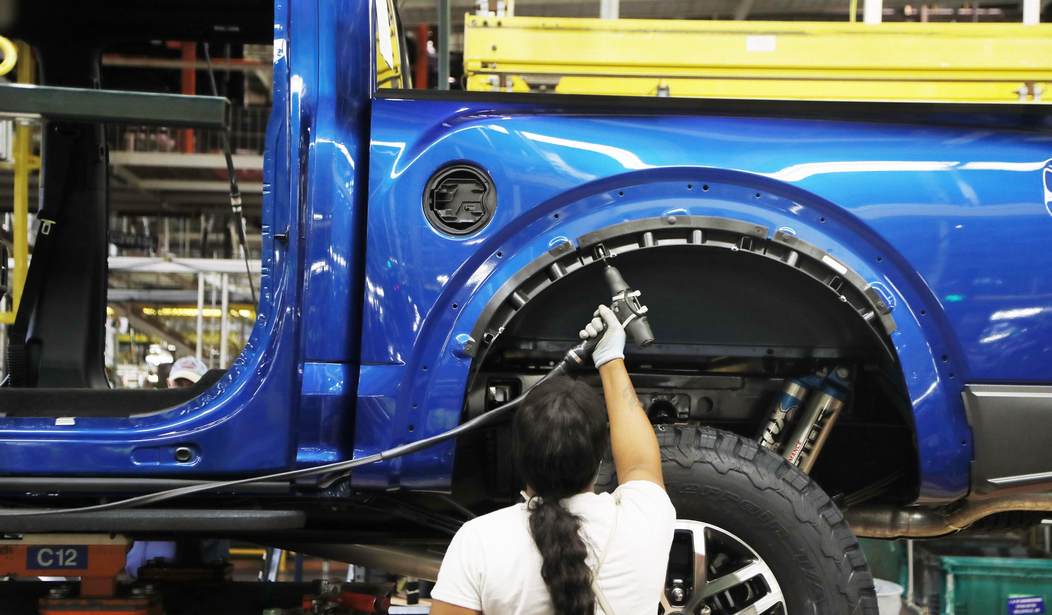The 2024 new car and truck sales season is well underway at this point and the news for the automotive industry isn't brilliant for the most part. That's to be expected during a period when interest rates are through the roof and people have less money to spend. But at Ford Motor Company, the outlook has been particularly dismal for their electric vehicle division. Following cues from the Biden administration, Ford had announced plans to aggressively expand their EV production and sales, but while last year was disappointing, 2024 is shaping up to be even worse. The Ford Model e, launched in 2022, sold only 10,000 of the EVs in the first three months of the year, a drop of 20% from the previous year. And to sell even that many, they had to cut the price to the point where they lost $1.3 billion in three months. That works out to a net loss of more than $130,000 for each of the cars they sold. (CNN)
Ford’s electric vehicle unit reported that losses soared in the first quarter to $1.3 billion, or $132,000 for each of the 10,000 vehicles it sold in the first three months of the year, helping to drag down earnings for the company overall.
Ford, like most automakers, has announced plans to shift from traditional gas-powered vehicles to EVs in coming years. But it is the only traditional automaker to break out results of its retail EV sales. And the results it reported Wednesday show another sign of the profit pressures on the EV business at Ford and other automakers.
The EV unit, which Ford calls Model e, sold 10,000 vehicles in the quarter, down 20% from the number it sold a year earlier. And its revenue plunged 84% to about $100 million, which Ford attributed mostly to price cuts for EVs across the industry.
Not all of the losses come directly from the manufacturing and delivery of the EVs. Included in the figures is all of the research and development that Ford has put into developing the next generation of EV technology. But they admit that the possibility of making back those investments is years away, assuming it happens.
The one bright spot on Ford's horizon is continued strong demand among government customers, as you would expect. They have an order for 9,250 E-Transit vans from the US Postal Service which they will be delivering through the end of the year. With the Biden administration in charge, of course the USPS and other government agencies will be ordering EVs. Why wouldn't they? After all, it's your money they are spending and if the vehicles don't perform very well or catch on fire, people will likely shrug it off as another day of government "performance."
Meanwhile, Ford Pro (which produces their combustion engine vehicles) posted a profit of more than three billion dollars after taxes during the same period. That's more than double their profits from the same period last year. Now, I'm not a business management or finance expert, but shouldn't the people on Ford's board be able to just look at those two figures and draw some sort of a hint from them? Ford isn't a government agency. They are part of the private sector and they have to produce profits to survive and continue providing jobs.
They also have a customer base that expects to be heard and they expect the company to respond to consumer demand. If people wanted these cars and trucks, they would be buying them, particularly when the government is handing out massive subsidies to make them more attractive. But the government tried to jam all of this through without wondering whether electric vehicles would be a good fit for people's lifestyles. Consumers want options. They don't want to be told what they can and can't buy. And Ford's disastrous sales numbers speak to what happens why you try to break those rules.







Join the conversation as a VIP Member